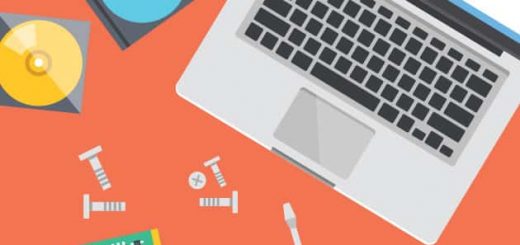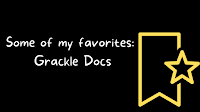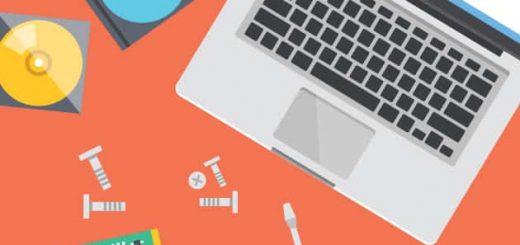In the wake of ‘Don’t Say Gay,’ LGBTQ students won’t be silenced
WINTER PARK, Fla. — Nearly a dozen Winter Park High School students settled into a classroom, forming a semi-circle around 17-year-old Will Larkins, who sat cross-legged on a desk.
It was the first meeting of the school’s Queer Student Union since March, when the group led a school-wide walkout to protest state legislation intended to limit classroom discussion on sexual orientation and gender identity. Critics have dubbed the measure the “Don’t Say Gay” law.
Will, the head of the club, wanted to get a sense of how everyone was feeling.
“For the most part, it was actually really positive,” said Echo Izzo, a 19-year-old senior who was near the front of the group that day.

Though the protest didn’t stop Florida’s governor from signing the bill into law, to the students who led the event, it was still a success. Hundreds of their classmates in this Orlando suburb ended up walking out of school for nearly an hour that day, waving plastic rainbow flags and chanting “We say gay.” Videos of the walkout generated millions of views on TikTok and Twitter.
But not all the students present that day showed up in support. On the fringes of the crowd, a teenager danced across a rainbow flag that had been tossed in the dirt, beneath a banner that said “Pride belongs here.”
That act wasn’t surprising, a Queer Student Union member said. What was unexpected was just how many students actually joined them in a show of solidarity.
“I totally felt like 50 people would show up,” Will said.
A year ago, Winter Park High’s Queer Student Union didn’t exist. Now, its members have found themselves on the front lines of Florida’s ongoing attempt to restrict what can be talked about at school.. The measure the students protested, formally known as the “Parental Rights in Education” law, bans instruction on gay, lesbian or gender identity topics from kindergarten through third grade, as well as any instruction about the topics that are not age- and developmentally appropriate at all grade levels.

Parents must also be notified if their children receive mental, emotional or physical health services at school, and can opt their children out of those services. One provision allows parents to sue school districts if they believe the district has failed to follow the new law. Several other states led by Republicans are planning to or have already introduced similar bills.
Proponents say the law is a necessary measure to ensure that parents are in charge of what their children learn about sensitive topics. Opponents say the law will have a chilling effect. Though the measure specifically targets curriculum and discussion in K-3 classrooms, some educators and advocates worry it could also cut LGBTQ kids in higher grades off from support.
“At the high school level, I think it will create anxiety and maybe hesitancy by staff to have some of the open conversations that they may have,” said Dawn Young, who is the advisor for the Queer Student Union and a mentor for students. “I think it will affect the kids feeling that it means something is wrong with them.”
Related: Teachers, deputized to fight the culture wars, are often reluctant to serve
For queer students, school is a place that can both hurt and heal. It can be a safe space, away from challenging home lives, where students can form clubs and make friends. School can also be a source of pain. LGBTQ students reported being bullied on school grounds at nearly twice the rate of their straight peers, according to the Centers for Disease Control and Prevention.
Winter Park High, a school of more than 3,400 students, sits in a suburb of Orlando, a city the U.S. Census reports as having among the highest concentration of same-sex households in the country.
The school is less than 10 miles from PULSE, a gay night club that was turned into a memorial after 49 people were murdered in what was the deadliest mass shooting in U.S. history. The students now at Winter Park High were in elementary and middle school when it happened.

Since the Queer Student Union was formed in November of 2021, its members have run voter registration drives, put up posters that say “Being gay is NOT a choice,” and they’ve been meeting with administrators to find ways to prevent bullying in school bathrooms.
Will closed the meeting with ideas for next year.
“What problems in the school can Queer Student Union solve, and what should we do as a club to keep engaging and be useful?” Will asked the group.
The students agreed they wanted to see more history lessons on the gay rights movement and presentations on why jokes about LGBTQ people are hurtful.
It’s unclear if the newly enacted law will affect those plans.
Winter Park High sits in a region that is less welcoming than other parts of the country to gay, lesbian and transgender youth, according to a 2021 survey by the Trevor Project, an advocacy and support organization.
Youth in the South reported higher rates of mental health issues and less access to affirming spaces, compared to their peers in other regions of the country, the survey found.
“There’s definitely been an increase in anti-LGBTQ policy and rhetoric, and we’re seeing a lot of this happening in the states in the South,” said Myeshia Price, a senior research scientist with the Trevor Project. “We do know that LGBTQ youth have had to grapple with these hostile political climates, and to have their identities being debated and discussed right in front of them is undoubtedly having some negative impact on their mental health.”

For some students, school is the only safe place.
On most days at Winter Park High, Echo can be found waiting in the parking lot hours after the bell rings. That is where they wait to be picked up by a friend’s mom.
For more than a year, Echo has been homeless.
LGBTQ youth, particularly trans and nonbinary youth like Echo, are more likely than their peers to experience homelessness. More than one-third of trans and nonbinary youth in the Trevor Project’s survey reported homelessness and housing instability. Among the top reasons LGBTQ youth experience homelessness is family rejection because of sexual orientation and gender identity.
Echo started living on the streets of Winter Haven, Florida, because of a volatile home-life, stemming in part from Echo’s identity. Echo temporarily moved into a Christian homeless shelter, but when shelter employees found out they are trans, they were kicked out.
For several weeks, they slept at bus stops and in an orange grove near school.
“I was kind of desensitized,” Echo said. “I stopped letting myself hope by that point.”
Staff at Ridge Community High School, which Echo attended at the time, found out Echo was living outside a few weeks later and put them on a waitlist for an LGBTQ-friendly shelter about an hour away, in Winter Park.

Echo started living there near the beginning of this school year, when they enrolled at Winter Park High School. They met a friend at the school and moved in with his family a few months later.
Echo often hangs out in a courtyard at school for several hours, and this week in April was no different. When class lets out most days, Echo goes outside and sits underneath an overhang. On this day, a glint of metal glimmered from the base of a concrete column where Echo normally sits. Echo always leaves a quarter for the ravens perched in the trees a few yards away because the birds are attracted to shiny objects.
“I try to involve myself in as much as I can so I’m not just sitting here,” Echo said.
Each week there are meetings to attend. They are a member of Prisms, a creative writing group and marching band. And Echo joined the Queer Student Union after encouragement from Young, the group’s teacher advisor.
Related: What do classroom conversations about race, identity and history really look like?
Echo has found their niche at Winter Park High, but school has always been complicated.
They have attended 15 different schools from kindergarten through 12th grade. Most of those transitions happened in elementary school after Echo was put in the foster care system in second grade.
Echo knew they were queer in third grade, but they didn’t come out until sixth grade. In ninth grade, Echo came out as trans and in 11th grade, they realized they are nonbinary.

“I always knew that something was off with my gender, because I hated so many things. I hated being called a girl, and I didn’t understand why,” Echo said. “I wish I could just pat my younger self on the head and be like, ‘You’ll understand one day.’”
But their family was not supportive, and neither were some students at school.
“It was a lot more safe than home, but it was definitely not safe,” Echo said.
When Echo came out as nonbinary they felt clearheaded about their identity for the first time. They still feel that way at Winter Park, even though it is a new place with problems of its own.
Often, there are students who make comments that make Echo feel different from everyone else. In April, a student in one of Echo’s classes criticized how much LGBTQ people have been speaking out about the new law.
“They said, in their words, ‘No one cares if you’re gay, just stop talking about it,’” Echo said. “We can’t just exist and not talk about it. We can’t just live a peaceful existence, because there’s always going to be people questioning us, making jokes, making threats.”
When Echo first heard that Florida’s new law was on its was to passing, they were distraught. Although the law won’t go into effect until after Echo has graduated, they are worried it will make school a tougher place to be for students like them.
“As far as being a student, that wasn’t something that was going to directly affect Echo,” Young said. “But it was the idea that something like this could pass and students like them would not be able to have a safe space that they could express themselves, because they couldn’t do that at home.”

Some students, like, Will, have started trying to change the status quo one class at a time.
In March, Will gave a presentation to his history class about the Stonewall riots — a famous 1969 protest in New York City that helped spark the gay rights movement. A video of the lesson went viral on Twitter.
It’s not the first time he has landed in the spotlight. In elementary school, he protested school lunch menus, and in middle school, he led a moment of silence for the victims of the 2018 Marjory Stoneman Douglas High School shooting in Parkland, Florida.
Will is confident about his convictions. He speaks out against banning books at school board meetings and attends legislative hearings. When strangers online asked why he wore a dress to school in that viral Stonewall video, his response was: “Because I wanted to.”
But being openly gay in high school has not been easy. When Will started speaking out about the new law, people began messaging him online telling him he is a pedophile and that he should kill himself. He’s talked candidly about struggling with mental health.
LGBTQ students reported being bullied on school grounds at nearly twice the rate of their straight peers, according to the Centers for Disease Control and Prevention.
“By the age of 8, I had developed a deep hatred for myself. I wanted to play with girls’ toys, dress in girls’ clothes, and I didn’t know why,” Will said at an Orange County School District board meeting in March. “When sixth grade rolled around, I started to realize I liked boys and not girls, and still having not been exposed to other queer people, the self-hatred only festered.”
Will said the struggle worsened last fall, after students bullied him at a Halloween party, yelling at him and calling him various slurs.
“I just became so depressed,” Will said.
It wasn’t until after the party that he realized most of his LGBTQ friends were also dealing with bullying and mental health issues. It was then that Young, the mentor, encouraged him and a friend to start the Queer Student Union.
“No one’s going to help us, clearly, so we’ve got to help each other,” Will said.
Related: ‘Just let me play sports’
In the more than six months since then, school has become a safer space for Will, even though the students who bullied him are still there.
“I’ve gotten to the point now where the hateful people are such a small minority,” Will said.
He’s outgrown them. The space in his head that was once focused on bullying is now consumed by his plans for the future.
This spring, Will decided to run for a position with the Student Government Association. It was another avenue for him to make his voice heard.
“We can’t just exist and not talk about it.”
Echo Izzo, 19, senior at Winter Park High School
In April, Will stood tall in his backyard. The sun would be going down soon, and he only had one take to get this last scene right for his campaign video. His dad steadied the cellphone in his hands and told Will he was ready.
Will put one hand on his hip and smiled for the camera.
“Even though it’s my first year at Winter Park High School, I’ve already made a splash,” Will said as he raised his arms over his head and dived into the pool.
The election took place a few weeks later. Will didn’t win, but he didn’t have long to dwell on it. The same day he found out he had lost, he was told he won a Webby Award — alongside two other Florida teens — for championing the “Say Gay” movement online. The awards honor “excellence on the Internet.” He received the award in New York City.
“My goal was to make the school better for everyone, and I’m not going to stop trying to do that because I lost an election,” Will said.
This story about LGBTQ students was produced by The Hechinger Report, a nonprofit, independent news organization focused on inequality and innovation in education. Sign up for the Hechinger newsletter.



